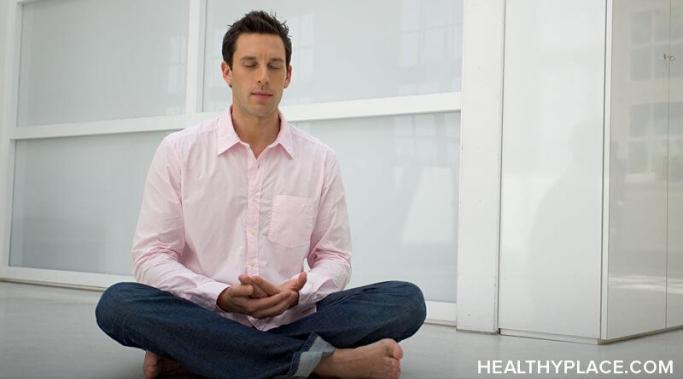Anxiety has a lot to do with activity in the brain. Anxiety also has a lot to do with activity in the gut. The health of our gut plays a significant role in our mood, anxiety levels, and overall mental health and wellbeing. This means that one effective way to help anxiety is to take good care of the gut and the gut-brain axis. Read on to discover why, and learn four ways to reduce anxiety through your digestive system.
Anxiety Management – Anxiety Schmanxiety
It's important to shift your self-talk when you're anxious because anxiety can (and usually does) make us painfully hard on ourselves. Any type of anxiety typically brings harsh self-judgments in the form of labels and negative self-talk. Often, it occurs so automatically and frequently that we almost get used to it and come to accept it as truth.
Being a cat owner, whenever I have to be away for an extended period of time, I have to arrange for someone to feed him. Every time I do that, without fail, I worry about him. It’s especially prominent during the few days before I have to leave him. It can often adversely impact my mental state for several days, so in this post, I want to explore why this may be the case.
An anxiety flare-up is an unexpected return of anxiety after you thought you had worked through it. Anxiety never fully disappears from anyone's life, but you may have been sailing through your life, unburdened by constant anxious thoughts and feelings and doing things you want to do, when seemingly out of the blue, anxiety jumps into your path and tries to control you again. Despite how it may feel, it's not a sign that you're doomed to a life of high anxiety. When you gain a broader perspective on what an anxiety flare-up is, you can take steps to handle it and move forward again.
I don’t know how many people feel limited by anxiety, but if I were to make a bet, I would say that quite a few people are impacted by the limitations of anxiety. So, I figured a post is recommended. When I am anxious, I find that there are certain things that I am unable to do because they are too mentally taxing. I’m not talking about things that I’m uncomfortable doing anyway – these are things that I love doing, things that I would ordinarily spend a lot of time doing if I wasn’t anxious. This post is about those things.
As explored in a previous post, health stress and health anxiety can be exhausting and burdensome. Our health is a vital component of our lives, and when something isn't right, whether it's a chronic condition or an acute, short-lived experience, it is natural to experience anxiety and stress because of it. Here's how to gain the upper hand on health stress and anxiety.
I’ve discussed my love of music on this blog a couple of times in the past. Though my tastes in music can be somewhat wide-ranging, without question, my genre of choice is metal. That may take some readers by surprise – metal seems like a kind of music that someone with anxiety would hate, given its reputation for being angry and abrasive. In this post, I want to go into a bit of detail with regards to why I like it and why metal helps my anxiety.
Thinking about the past is a major cause of anxiety. Ruminating over past situations, conversations, things we did or did not do or say, and anything else that has already happened can be incredibly anxiety-provoking. When we don't let go of the past, the mind can run wild and make problems and difficulties grow. Reliving thoughts and feelings can keep us anxious, stressed, and stuck. However, the past does have a place in reducing anxiety. When you look to the past to identify things that have gone well and cultivate gratitude for what is good in your life, you take steps to reduce anxiety.
Working on anxiety is a difficult journey. Anxiety is an exhausting burden that disrupts life. For some people, it comes and goes. For others, it can last for a long time, sometimes years. Either way, it can seem to wreak a lifetime's worth of havoc. The good news is that anxiety isn't who you are. It's something you experience. This means that you can reduce it and minimize its effects on your life and wellbeing. Despite how hard it is, you've got what it takes to tackle it. Here's why and how.
As of late, I’ve been looking for small, everyday things I can do for myself in an effort to keep my anxiety under control. From that, I’ve been focusing a lot on the sense of touch and realizing how deeply a simple thing like touch can impact my anxiety.









